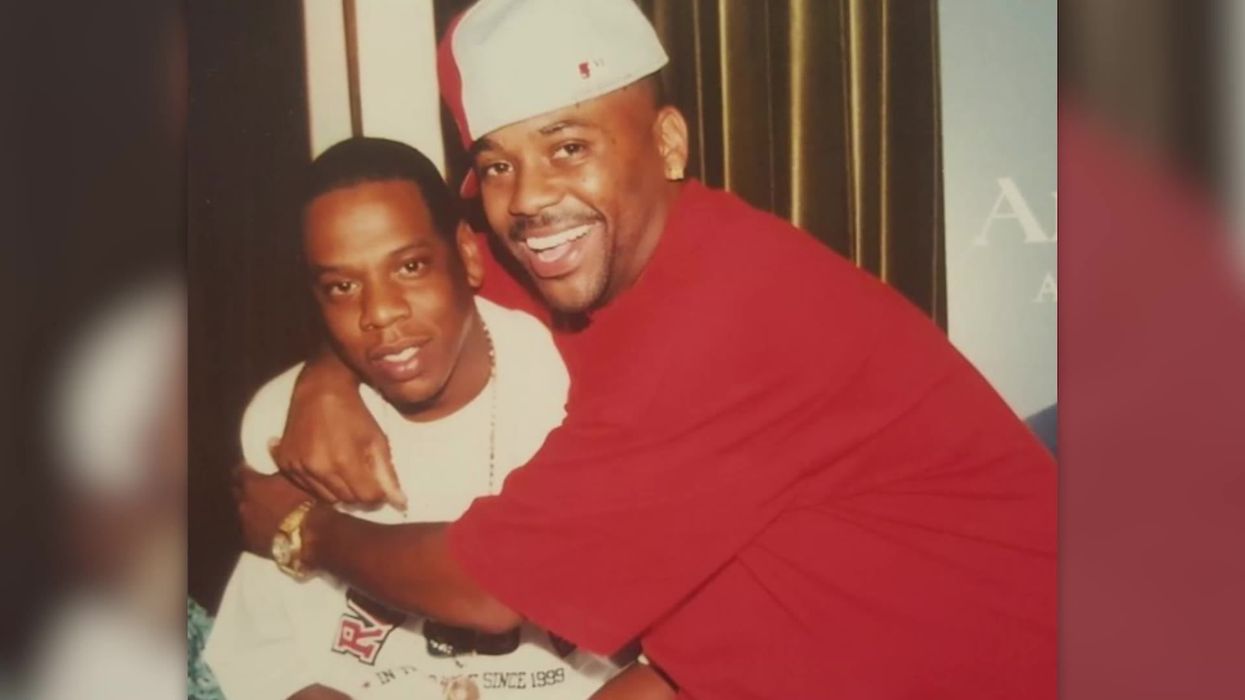
Self-Efficacy: How to Never Stop Believing in Yourself
If you truly believe you can do it, youre probably right.
Parents tend to throw a lot of aphorisms at their kids when they’re trying to encourage them, be they encouraging them to study for a test, learning to ride a bike or drive a car, practice those soccer skills, rehearse a piece for a piano recital, and on it goes. Think things like: “It’s mind over matter!” or “When the going gets tough, the tough get going!” and such.
Sure, the kids might be annoyed by these and other idioms, but guess what, kid? Your parents are onto something, because according to social cognitive theory, these types of encouraging statements enhance self-efficacy beliefs, and it is just these beliefs that will lead to greater success in life.
Health psychology explores self-efficacy theory (among other constructs) and states that your sense of self-efficacy influences your life in almost everything you do; from learning to drive or dribble a ball to advancing through a meaningful, lucrative career, to navigating relationships with others. Give mom and dad a break, hackneyed as some of their expressions may be: they’re only trying to build higher self-efficacy in those they love, because they know your perceived self-efficacy has very real impacts on your life. And that’s true even if your folks have never even defined self-efficacy using the term itself.
So, what is the meaning and importance of self-efficacy? Let’s answer that in two parts.
What Does Self-Efficacy Mean?

Self-efficacy, according to the psychologist who coined the term in the late 1970s, Dr. Albert Bandura, is a person’s beliefs in his or her abilities to accomplish things. Those with high levels of self-efficacy are confident in their capacity to be successful in a range of tasks. These may be in the context of professional or academic self-efficacy, or more personal self-efficacy as in the ability to control one's emotional and physical reactions.
For measuring self-efficacy, you can turn to a self-efficacy questionnaire known as the Generalized Self-Efficacy Scale (GSE; sometimes also called the General Self-Efficacy Scale), created by psychologists Ralf Schwarzer and Matthias Jerusalem.
It is a type of Causal and Control Beliefs test and this scale of self-efficacy measures just that, one's beliefs about the causal relationship between their behavior and external situations, or how much control they have over external situations.
RELATED: The 10 Steps to Confidence That No One Told You About
The GSE is a self-report scale consisting of 10 questions, and is easy to complete yourself. Answer the questions with the response that fits you best: 'Not true at all' (1pt), 'Barely true' (2pts), 'Moderately true' (3pts), 'Exactly true' (4pts). To get your results, simply add up the points according to your responses. Scores can range from 10 to 40 and as you might have guessed, the higher your score, the higher your self-efficacy.
- I can always manage to solve difficult problems if I try hard enough.
- If someone opposes me, I can find the means and ways to get what I want.
- It is easy for me to stick to my aims and accomplish my goals.
- I am confident that I could deal efficiently with unexpected events.
- Thanks to my resourcefulness, I know how to handle unforeseen situations.
- I can solve most problems if I invest the necessary effort.
- I can remain calm when facing difficulties because I can rely on my coping abilities.
- When I am confronted with a problem, I can usually find several solutions.
- If I am in trouble, I can usually think of a solution.
- I can usually handle whatever comes my way.
If you scored low on the self-efficacy scale, don't worry. It is not fixed and there are ways to build self-efficacy in one's self. Below, we explore how self-efficacy develops.
Why Is Self-Efficacy Important?

To be sure, overconfidence or a lack of true understanding of your knowledge, skills, and abilities can be an issue: a person could be entirely confident he or she could jump across a little creek only to wind up soaking wet, that they could deliver a perfect wedding speech off the cuff only to wind up a rambling mess, or that they could launch a successful business with gumption alone only to end up in financial ruin.
RELATED: Here’s Why Passion Is the Key To Success
On the other hand, without high self-efficacy, no one would be able to clear the creek let alone become an Olympic long jumper; no one would give a few remarks to a small crowd or take to the stage to perform before thousands; and if no one ever ventured in business, no one would ever gain success.
A sense of efficacy in one's self, tempered by a sense of reality, is critical for success, and that’s true in all realms of life, from the professional to the personal to the academic, as we’ll see.
How To Develop Self-Efficacy

What does it mean to be high in self-efficacy? It means you believe you have what it takes to be successful in accomplishing a task. According to Bandura, there are four main sources of self-efficacy:
Mastery Experiences
Mastery Experiences are those in which we succeed when facing new challenges. These are believed to be the strongest influences when trying to build self-efficacy due to our direct, personal link to the experience.
Vicarious Experiences
As the name implies, Vicarious Experiences help enhance self-efficacy through the power of observation. When we see others succeeding or failing at a particular task, we can use this knowledge to adjust our own behavior when attempting that same task.
RELATED: Essential Skills for Success: A Guide
Verbal Persuasion
This is where a parent, loved one, or mentor can have the most influence. Verbal Persuasion relates to the impact words of encouragement can have on our ability to succeed. Think of coaches hyping up a team before a big game.
Physiological Arousal
Finally, Physiological Arousal highlights the link between our emotional and physical state, and how it may affect our ability to succeed in completing a task. In other words, feeling tired, stressed, or fearful, will effectively impact your belief in accomplishing whatever it is you're doing.
In order to develop self-efficacy, be mindful of the above sources and how they related to you. With time and practice, you can successfully enhance your self-efficacy.
Examples Of Self-Efficacy

Find a very successful person and you will almost always have found a person who believes he or she is capable of success. And this is true, as noted, across the boards.
For example, first picture two doctoral candidates about to defend their theses; imagine the students have worked in the same field, have written papers that are quite similar and both quite good, and who are equally bright and capable. Here’s the catch: one of these potential PhDs is fully confident in her abilities, while the other lacks confidence in her own capacity. Which student is going to deliver the better defense?
RELATED: The Persona: Why Growth Means Removing The Mask You Show To The World
Thomas Edison once said: “Genius is one percent inspiration and 99 percent perspiration.”
Who is willing to give all that sweat, AKA effort? A person with sky-high self-efficacy beliefs, that’s who. Confidence quotes like that famous one from Edison tend to come from people who had truly developed their own self-efficacy.
And you can see examples of how people with high self-efficacy tend to be successful in the arts, in sports, in politics, and on it goes; a mind and spirit tuned to success tends to lead the body to achievement.
Self-Efficacy vs Self-Esteem

The primary dictionary definition of the term self-esteem, quite literally from Dictionary.com, is: “a realistic respect for or favorable impression of oneself; self-respect.” As you can see, nowhere in there is any mention of one’s abilities or aptitude – or the perception thereof, also known as a sense of self-efficacy. Simply put, self-esteem and self-efficacy are not synonymous; they’re not even interdependent.
RELATED: 4 Powerful Tactics To Feel Confident When You’re Secretly Inexperienced
There are, in other words, plenty of people with a sense of self-worth or self-love, who know they are good and decent human beings worthy of respect and kindness and fairness, who nonetheless don’t think highly of their abilities to achieve various goals. Having a high self-efficacy can enhance self-esteem, but self-esteem is not a fundamental component of self-efficacy.
On the other hand, people with very low self-esteem also tend to have a low sense of self-efficacy. The good news is that the self-efficacy scale is a sliding one, and not just from one person to the next, but within each of us. You can build self-efficacy over time as you face difficult tasks with the most optimistic possible attitude each time, practicing self-regulation over worries and negative thoughts, and believing in yourself as much as you can.
With effort, over time you will foster self-efficacy and improve the emotional reactions you have to difficult tasks and challenges, with the happy outcome being genuinely improved results, all because you let your own mind and your own self-efficacy lead the way.
In short, a person can let oneself succeed if only they first believe success is the likely outcome.































